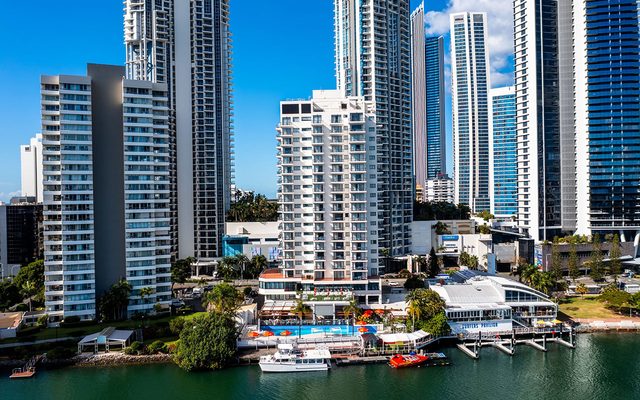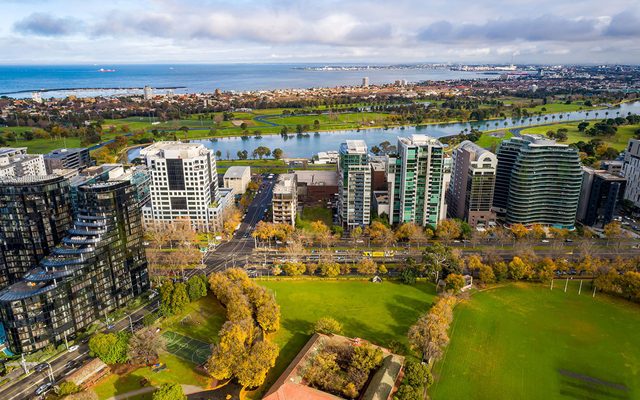This article is from the Australian Property Journal archive
BOTH Australian and global REITS have been impacted by the covid-19 pandemic, particularly the retail sector, according to Principal Global Investors.
Portfolio managers Janine Yoong and Todd Kellenberger said the ongoing impact of social distancing will affect all real estate sectors, especially retail, while the industrial sector is more resilient.
Yoong said investment markets for Australian REITs (A-REITs) that have usually been “rock solid” are now facing serious headwinds.
Yoong pointed out that the heavy weighting of the Australian market toward retail has had a flow on effect to overall falls for the index. The Q1 figures from the S&P ASX 300 AREIT index show falls of 34.3% for the index.
“We are all finding ourselves in a situation that’s definitely not business as usual. The market is pricing in the impact of social distancing. Real estate, as a place of congregation for people, is being impacted around the world, and Australia is no different.
“Retail REITs are most heavily impacted because of social distancing guidelines and their facilities such as shops, cinemas and restaurants are either facing forced closure or a sharp fall in foot traffic, resulting in tenants who are unable to pay their rent. Some big-name retailers are voluntarily shutting their physical stores and trying to negotiate rent relief with landlords,” she added.
Yoong said the office market will also be affected, albeit to varying degrees, “as smaller SME tenants who are impacted by the virus will struggle to pay their rent and will be seeking rental relief from landlords,”
“That said, SMEs don’t make up all tenants in a building, so there is some income security from bigger corporate tenants. On the other hand, neighbourhood shopping centres anchored by supermarkets is holding up well and is seen as a safe haven,”
On the bright side, Yoong pointed out that the Australian market has seen a more coordinated response from government, regulators and financial institutions to deal with the fallout from the virus compared to other markets.
“We’re seeing the banks work with the government and regulators, and stepping up to provide assistance and relief. For landlords, commercial consideration and practicalities are having to outweigh contractual terms. For example, a landlord might negotiate a temporary rental reduction in return for the tenancy committing to a longer lease term,” Yoong said.
Kellenberger said global and US REITs are experiencing similar structural issues, particularly hotels and retail.
“REITs have seen a number of concerns through this unprecedented crisis, which is why some stocks have sold off. When you have this stress in the market, many sectors will react the same way, meaning the correlation coefficient across many asset classes will rise to one. We saw that in the last downturn, and we’ve seen that in this downturn as well.
“Specific to REITs, one of the number one fears has been that the economic damage would result in a broader market crisis. Over the past week, however, we’ve seen central banks taking decisive action. We’ve then seen global REITs rally as the market isn’t quite as scared of a broader financial crisis,”
Kellenberger added that in the US the extension of the lockdown would affect the sector unevenly.
“We already had concerns about the structural headwinds towards physical retail, and the COVID-19 situation is likely to just make them stronger. Hotels, for example, essentially offer one-night leases and so have already been rapidly affected by the lockdowns. Retail’s another concern because people won’t be able to go to shops, not to mention they’re going to spend a lot less because of the prospect of job losses and recession.
“On the other hand, higher quality REITs with stronger assets and tenant-base will do well. The majority of these quality assets have tenancies locked in for a number of years which will provide some downside support,”
Having said, over the long-term, they reminded investors that while returns may be down, investing in REITs is also about growing income streams, and historically, REITs have proven to be a good diversifier.
“Things are changing every day. We are watching the markets and making assessments each day, and while the government’s stimulus measures are encouraging, we need the number of new cases to peak and slow before we are optimistic.
“Globally, valuations are almost back to GFC levels. However, most REIT markets are not as financially levered as they were pre-GFC and have gone into this downturn with far less risk than before. Most investors are focusing on balance sheets, but the reality is that we’re in a better position than we were in 2008. Now, the bigger question is the duration of the COVID-19 lockdown,” Yoong said.
Kellenberger said through his conversations with investors, he was seeing opportunity.
“We would remind investors to take a long term focus. Much of the focus now will be on the contagion of the virus and at end of day, we will get through this and see brighter days ahead,” he concluded.




